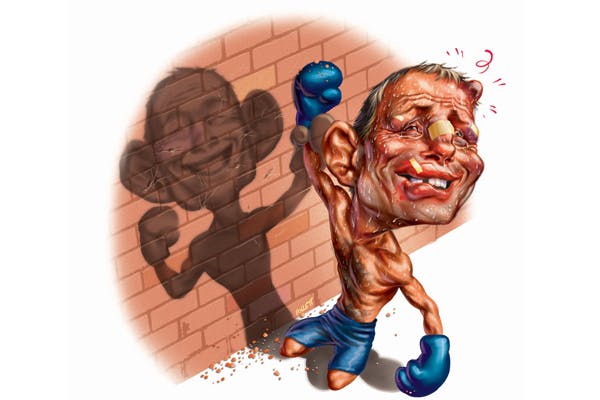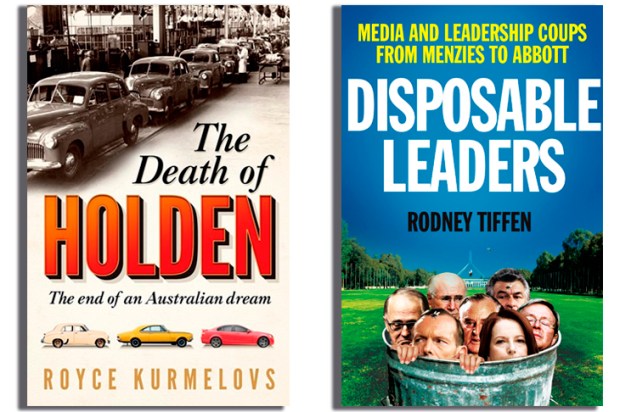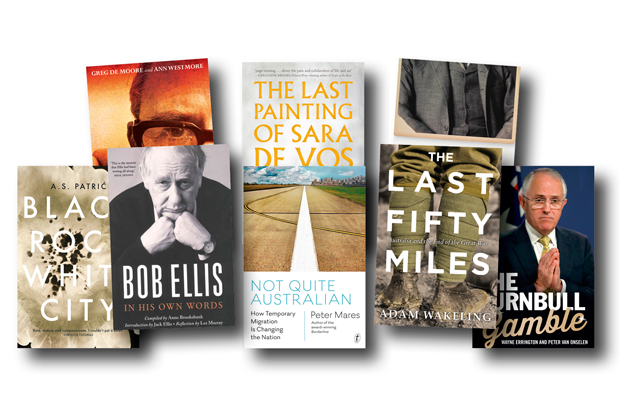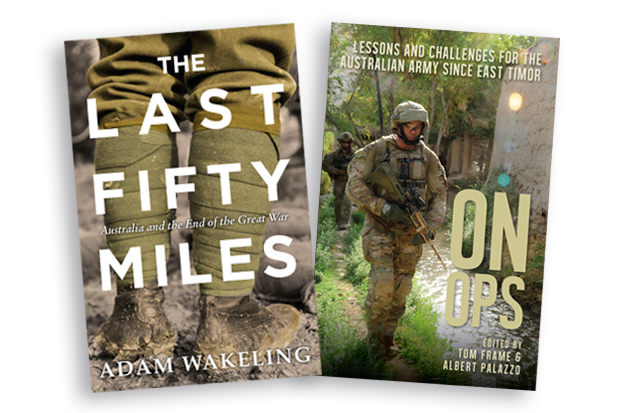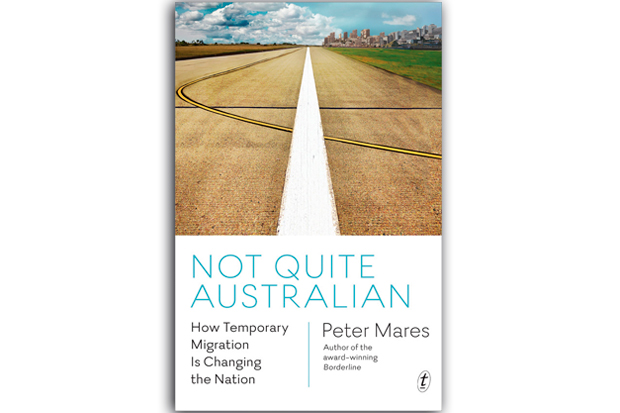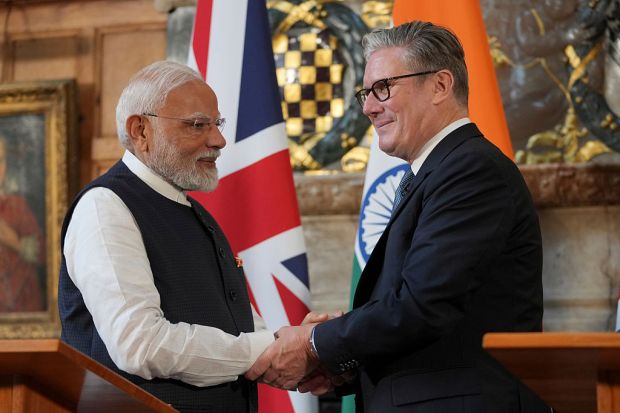Political Animal: The Making of Tony Abbott
By David Marr
Black Inc, $19.95, pp 208
ISBN 978186355980
If there is anything the Left love more than talking lovingly about itself, it is talking disparagingly about its opponents. Which brings us to the snotty condescension of David Marr, most often seen on the ABC (where else?) but now on display in this book, an extended and updated version of an essay that appeared in Quarterly Essay in September 2012. To tell the truth, the book does not really break much new ground, and does not add much to our overall knowledge of Tony Abbott. It is better than Susan Mitchell’s hatchet job, A Man’s Man, though that is not saying much.
The Left often like to think they have a monopoly on political conviction, so people like Abbott can present something of a problem. It makes no sense to dispute that he has deep-seated beliefs, so a better course is to attack those beliefs as extreme and thuggish. In this vein, Marr spends a great deal of time on Abbott’s university days, where he was known as a cultural warrior and athlete. He goes over allegations like the wall-punching incident but it sounds no more convincing now than it did the first time around. And Marr’s focus on this period seems odd. It was a long time ago: the Seventies was a very different era, and we were all very different people then.
Is Marr suggesting that this was the formative period of Abbott’s life, a time from which he has never really escaped? He doesn’t say so, although he has indicated elsewhere that Julia Gillard, for instance, should not be held responsible for things that happened a long while back. He describes raising questions about Gillard’s connections with the AWU scandal as ‘smearing’, but seems quite willing to believe any claim made about Abbott, as long as it has a ring of nastiness to it.
In fact, in terms of Abbott as a practising politician, the more instructive part of his career appears to have been when he was working in the office of John Hewson, including during the ill-fated 1993 election campaign. Marr looks at this but not in great depth, although he acknowledges that it was due to this experience that Abbott began to realise that conviction was not enough. Tactical nous was also needed, and a part of that is understanding that your own beliefs might not be shared by the broader community.
Some people might see this willingness to moderate his views as a process of maturation and growth, but Marr prefers to frame it in conspiratorial terms. He veers between seeing it as a sham, a manoeuvre by Abbott to trick his way into office and then implement a far-right agenda, and describing it as a sign that he is willing to throw away his convictions in order to win office.
This is not to say that Abbott has yet found the right combination. Yes, some crucial aspects of his thinking are still evolving, and he has moved away from some earlier positions and statements. Which raises the question: who hasn’t? Gillard was once a Fabian Socialist, Hawke a beer-swilling larrikin. Indeed, weighing principle against pragmatism is something that politicians of any stripe struggle with; it may even be the defining conundrum of elective politics.
But Marr’s selective approach means that no real light is shed on Abbott’s personality. He makes only a passing, second-hand reference to Abbott’s annual Pollie Pedal ride through regional Australia (which Marr calls ‘the boondocks’) which raises substantial funds for charities. Abbott’s regular work in Aboriginal communities gets no mention at all. Yet Marr happily reiterates Gillard’s charges of misogyny, and throws in some comments from various anonymous sources. If Marr had taken a few moments to speak to the people at the Manly Women’s Shelter, a local cause that Abbott personally and financially supports, he would have found a quite different picture. Clearly, Marr has decided that the best way to deal with inconvenient facts is simply to ignore them.
In the same way, Marr’s use of polling data is odd. At the time of the original essay, Gillard was ahead of Abbott, and the ALP was coming back against the Coalition. But since then (and in March, when the book was finished), Abbott has clearly moved ahead, and the Coalition has built up a lead which points to an electoral avalanche. Marr seems unmoved by this new evidence, suggesting that any support for Abbott and the Coalition is a matter of winning by default.
Nevertheless, Marr acknowledges the likelihood of Abbott becoming PM. The question, he says, is whether it will be Values Tony or Politics Tony. He does not come to a firm conclusion, although he hints that Abbott as Prime Minister might be not unlike his old mentor John Howard. Marr sees this as awful prospect. Many would disagree.
This raises the question of whether Political Animal is a biography at all. It seems more like a polemic, a partisan weapon pretending to be objective research. But one interesting thing has come out of it: Abbott’s own comments about the book. Cited on the publisher’s website, Abbott says: ‘I certainly don’t think all of his judgments were fair and I don’t think all of his interpretations were correct. But it’s a more fair-minded and more generous assessment than many people, perhaps myself included, had expected.’
This is a mature, sensible, considered view. So perhaps, in a roundabout way, Marr has let us see something important about Abbott. But not what he had in any way intended. Think of it as ironic.

